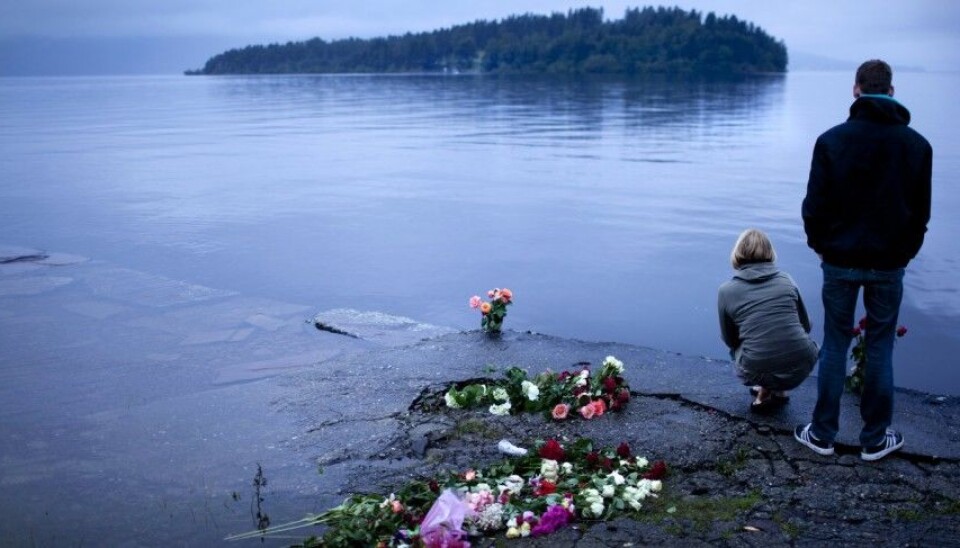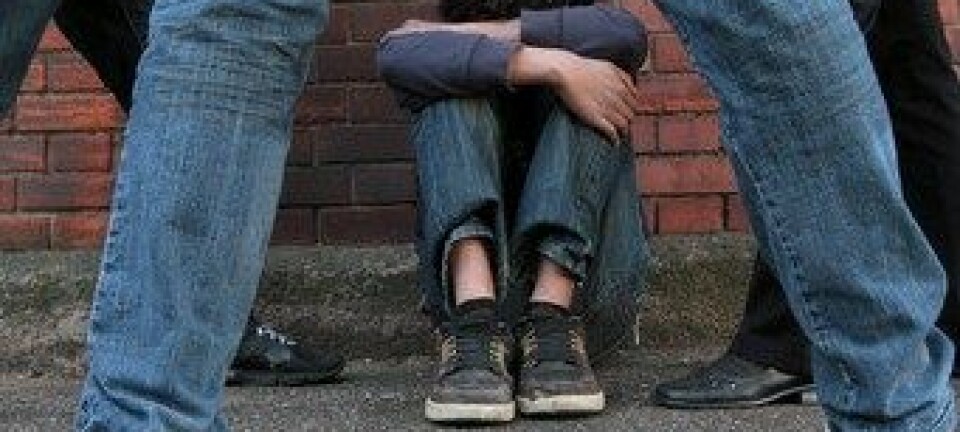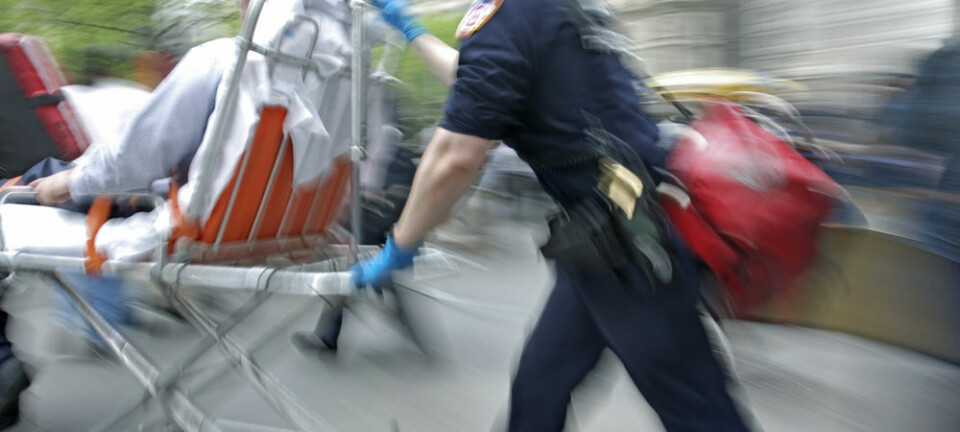
How disasters can lead to personal growth
Follow-up support can make the difference between post-traumatic growth and post-traumatic stress. Recognition from work colleagues is all-important for what happens afterwards.
It is well known that many people who have experienced tragic events suffer post-traumatic stress reactions later. And paradoxically, many also state that they are grateful to have experienced the harrowing event, because they have grown as a human being from it.
Trond Idås is researching journalists who have covered natural disasters, terrorist acts and judicial proceedings of child abuse. And he has found that holds true for them as well.
Those with the greatest risk for stress reactions afterwards also have the greatest chance for growth, and Idås believes the results of his doctoral research can be transferred to other relevant professions.
Nightmares and stress
Journalists who cover disasters and emergencies come into intimate contact with the suffering of the victims.

Idås has found that although journalists may have nightmares for a long time afterwards and show signs of post-traumatic stress, the majority are glad they covered the case and are prepared to cover more such assignments.
The aim of Idås’ research is to identify what measures are conducive to personal and professional growth, in order to prevent health problems among journalists in the aftermath of covering accidents, crime, emergencies and disasters.
For several years, under the auspices of the Norwegian Union of Journalists, Idås has been conducting studies of journalists who covered serious Norwegian murder cases, the 2004 tsunami in Southeast Asia and Norway’s 22 July terrorist attacks.
As part of these studies, he “asked those who covered the 2011 terror at Utøya whether they had experienced personal and professional growth after the stress of that assignment.”
Many of the journalists answered yes.
Idås also posed questions about the journalists’ working environment to find out what variables influence a constructive versus destructive stress response.
Intrusive memories
News journalists have a tough image. They are often confronted with other people's suffering, and want to show their colleagues that they can take it.
“Journalists are afraid to show that things affect them, because it can be perceived as a sign of weakness,” says Idås.
This fear can prevent them from openly acknowledging that they are struggling emotionally after a traumatic event.
Intrusive memories— the uncontrolled reliving of things they have done, seen, smelled, heard or said—can crop up as flashbacks, nightmares or intrusive images.
Strong reactions
Many journalists reported that they struggled with a bad conscience.
“Some faced strong negative reactions from relatives and victims while doing their job to describe what happened. Others experienced the dilemma of wanting to help victims during the tsunami while needing to cover the disaster,” says Idås.
One youth reacted violently when asked by a journalist if he had done something to save others. The journalist was later plagued by a bad conscience and intrusive memories about whether he should have asked the question.
Journalists have to gauge on the spot what questions they can and should ask, an ability that often comes with experience.
For an inexperienced journalist this can be challenging, especially in a stressful situation. Idås says this makes it all the more important to process the situation afterwards.
Processing is important for health
Your brain repeats what you’ve experienced. This is part of a natural learning process, which helps you be better prepared the next time you experience something similar,” says Idås.
Processing a tumultuous event is an important way to build experience and prevent stress reactions from developing into a post-traumatic stress disorder. “Being afraid to talk about the emotional repercussions puts you at greater risk of stress reactions becoming a health problem,” he says.
The study shows that some journalists experienced both personal and professional growth after the experience, including greater empathy and understanding for other people's situations, increased self-confidence and stronger professional skills on challenging assignments.
Recognition is crucial
What separates the individuals who experienced growth from those who struggled most with post-traumatic stress reactions?
“We found that getting recognition for the work they have done is very important. This factor alone explains more than 20 per cent of the variability in post-traumatic growth among journalists,” says Idås.
Not only praise, but also thorough discussions about how journalists handled the task, contribute to post-traumatic health. Being backed up by their journalism colleagues is crucial.
Talking with work colleagues afterwards turns out to have a greater effect than speaking with a psychologist or family and friends, says Idås, who is a former journalist and news editor at Aftenposten.
“The reason is that journalists, like the police, have their own professional code of ethics. Family and friends have a different ethical-moral framework,” explains Idås.
Sometimes a journalist has to interview people who have been affected in order to fulfil their social duty to disclose what really happened, he adds, and friends don’t always understand this.
A lack of social support for the work you've done can have a strong negative impact.
The study shows that an organized debriefing is less effective than informal talks with a trusted colleague about the mentally challenging aspects of the job.
And a culture of caring for each other and gaining recognition for the work you've done are also important.
Women score highest on stress and growth
Idås found large differences between the sexes and between more and less experienced journalists. For both sexes, he found that issues concerning children were especially distressing.
Women scored the highest on both stress and growth. Psychologists believe this is because women tend to score higher than men on empathy.
The genetic explanation for this is that men have traditionally been warriors and defenders, and empathy would have led to vulnerability, while women have been caregivers with responsibility for taking care of the next generation, says Idås.
Young prone to shame
He also found that young, less experienced journalists were vulnerable. Temporary employees had a vested interest in hiding their reactions, because they were afraid of not getting another assignment.
According to Idås, many temporary summer staff were sent out during the 22 July attacks. Four out of ten journalists who went out in the first hours had less than five years experience. Many of these responded that they felt a lot of guilt and shame when this was investigated 8-9 months later.
Some experienced verbal abuse that hit them personally and affected their self-image.
Although most temporary staff were very keen on doing a good job, they didn’t dare be open about their feelings.
“Follow-up with inexperienced journalists is especially important, and constructive feedback is most effective for them,” says Idås.
Transferable to other professions
Norwegian journalist studies are also getting attention abroad, both at conferences and in journals and trade publications, including in the United States.
Idås says that Norwegian researchers have reached out to almost all the journalists who worked through traumatizing events, and the high response rate has put their studies in the field ahead of many other countries.
He believes the results can be transferred to other occupational groups that are exposed to major accidents and upsetting litigation, such as health professionals, lawyers and volunteers in charities.
Research in this area has been primarily directed at soldiers and emergency personnel like paramedics, firefighters and police officers.
Professionals and colleagues in these sectors have long had procedures for systematic debriefing of traumatic events.
But other professions have not established such procedures. The studies show that conversations with colleagues are often of great benefit.
------------------------------------------------
Read the Norwegian version of this article at forskning.no


































